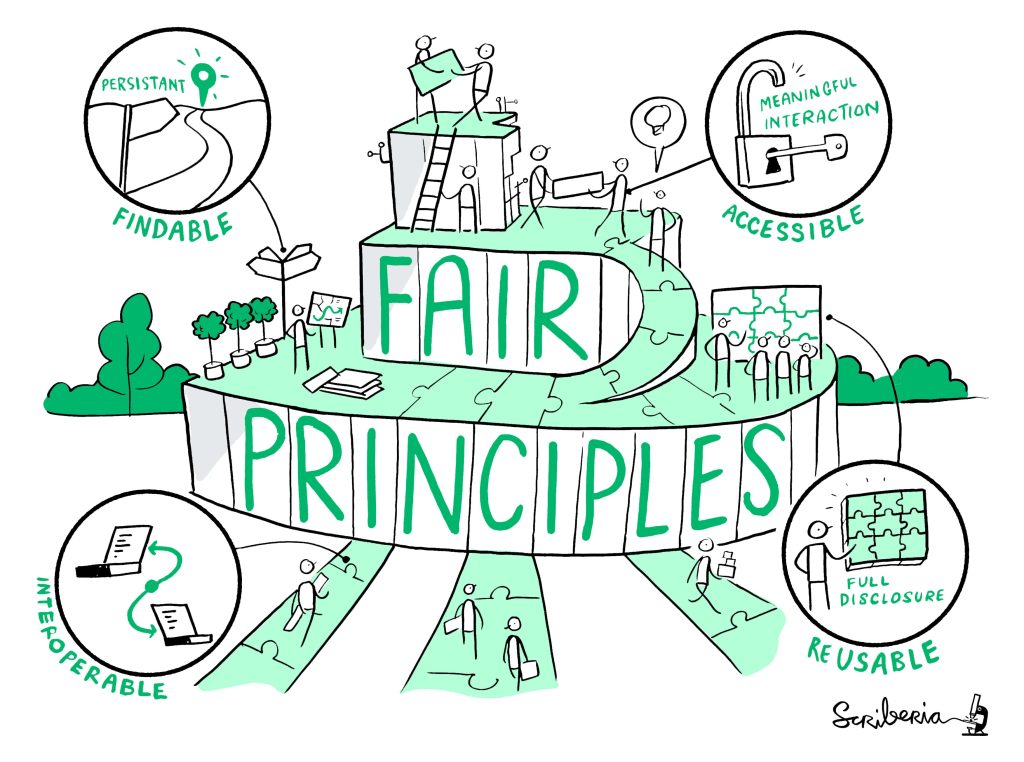 Source: FAIR principles. The Turing Way Community. This illustration is created by Scriberia with The Turing Way community, used under a CC-BY 4.0 licence. DOI: 10.5281/zenodo.3332807
Source: FAIR principles. The Turing Way Community. This illustration is created by Scriberia with The Turing Way community, used under a CC-BY 4.0 licence. DOI: 10.5281/zenodo.3332807
A key aspect of Open Science is to make your research FAIR: Findable, Accessible, Interoperable, and Reusable.
University of Groningen
Although the FAIR guiding principles were mostly applied to research data, recently they have also started to be applied to research software.
Why is FAIR software important?
FAIR research software is important because:
- Modern research relies heavily on the availability and development of software. FAIR software makes finding and using existing, available software easier.
- Findable and accessible software creates recognition for the author through utilization and citations.
- Interoperable and reusable software enables a faster growth of the knowledge in the community.
- FAIR software benefits from having a given research process cited, tested, and validated by the community.
- Using a software repository to make your code FAIR allows you to keep track of the versions of your software.
- FAIR software enables transparency, reproducibility, and reusability in research.
- FAIR software allows science, education, society, and industry to have effective access to software-based knowledge.
Five recommendations for FAIR software
- Use a publicly accessible repository with version control.
- Register your code in a community registry.
Sources:
FAIR research software (University of Groningen). https://www.rug.nl/digital-competence-centre/research-data/research-software-management/fair-research-software
Martinez-Ortiz, C., Kuzak, M., Spaaks, J. H., Maassen, J., & Bakker, T. (2020). Five recommendations for «FAIR software» (1.0). Zenodo. https://doi.org/10.5281/zenodo.4310217
Last updated: 21/02/2024